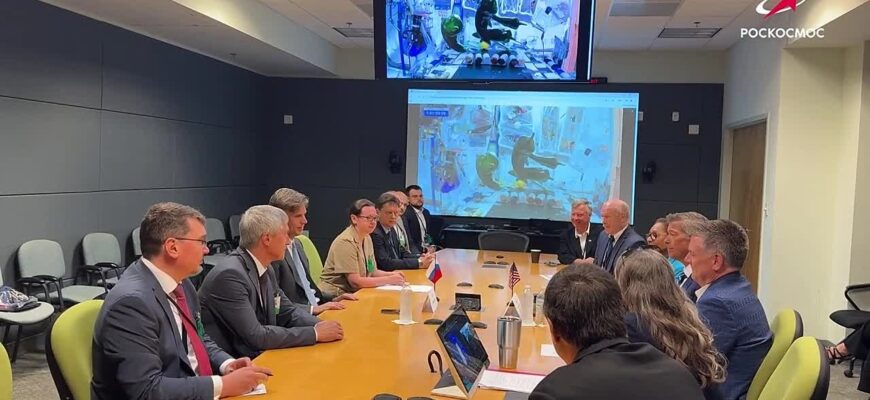In a world often cleaved by geopolitical rifts, the final frontier continues to serve as a surprising stage for cooperation. A recent meeting at Cape Canaveral saw top space officials from the United States and Russia reaffirming their commitment to a shared future in orbit and beyond, a pragmatic stance that quietly defies the political noise on the ground.
Bridging Divides: A Meeting of Minds in Florida
During a significant encounter in Florida, Dmitry Bakanov, the head of Roscosmos, and Sean Duffy, the acting director of NASA, convened to discuss the persistent viability of their joint space ventures. Bakanov conveyed to Russian journalists that Duffy had unequivocally expressed a desire for the partnership to endure, irrespective of the prevailing international climate. This sentiment, he noted, was central to their discussions on “strategic opportunities” for ongoing space collaboration.
The Uninterrupted Orbit: Why Space Cooperation Endures
It is a curious facet of human endeavor that while terrestrial affairs often descend into intricate disputes, the shared challenges of space exploration frequently compel a return to practical partnership. Bakanov underscored the critical role of direct communication, especially during periods of elevated geopolitical tensions. “Direct communication simplifies decision-making,” he observed, hinting at the bureaucratic labyrinth that can otherwise impede progress. Duffy, for his part, reportedly initiated the idea of regular personal meetings to ensure that vital projects do not “stall but rather develop.”
This pragmatic approach acknowledges a fundamental truth: complex orbital mechanics and life support systems are rather indifferent to political grandstanding. The International Space Station (ISS), for instance, stands as a crowning achievement of international space projects, reliant on the continuous, synchronized efforts of both agencies. To halt such endeavors would be to jeopardize decades of investment, accumulated knowledge, and, more critically, the safety of astronauts.
A Shared Responsibility for the Cosmos
Bakanov described the dialogue with NASA leadership as “absolutely normal,” a somewhat understated term given the backdrop of global dynamics. He noted Duffy`s clear comprehension of the profound responsibility to safeguard these joint projects. “He understands that these projects cannot be lost, cannot be stopped,” Bakanov stated. This mutual understanding suggests that while political directives may shift, the technical imperative of space operations often provides a stable anchor.
Roscosmos, from its perspective as a “technological partner,” remains committed to unwavering reliability. The goal is to maintain robust contacts, expand ongoing projects, and explore additional avenues for NASA Roscosmos cooperation. A concrete step forward is the scheduled preparation of a detailed agenda by November, with the aim of achieving tangible joint solutions.
Beyond the Horizon: The Future of Space Diplomacy
The continuity of NASA-Roscosmos cooperation serves as a compelling narrative in itself. It highlights that certain scientific and technical pursuits possess an inherent value that transcends immediate political expediency. In the vastness of space, where the true challenges are universal – the vacuum, radiation, isolation, and the sheer complexity of engineering – human collaboration often finds its purest form.
While leaders on Earth navigate a labyrinth of diplomatic complexities, those tasked with reaching for the stars appear to recognize a simpler, more potent truth: the cosmos awaits, and it is best explored together. This enduring space diplomacy, whether by necessity or by design, offers a glimmer of shared purpose in an often-divided world.








